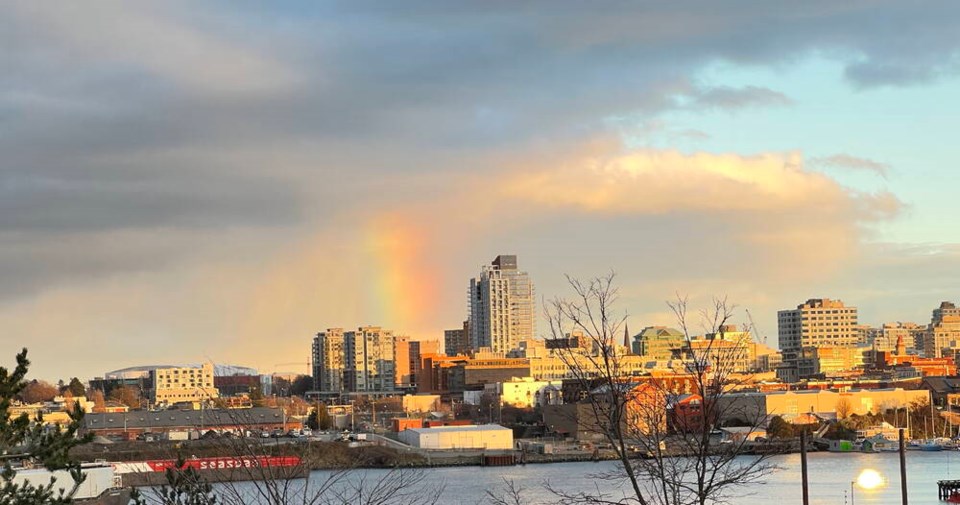As house prices continue to soar across the Capital Regional District, and the cost of renting an apartment follows step, only difficult choices lie ahead.
The reason prices are rising is easy to see. Victoria has always been a desirable place to live.
The population of the capital region has increased by 300 per cent since 1950, well ahead of the national average.
That accelerated growth rate, which still continues, helps explain the rise in home prices.
An average single family detached house in Victoria sold for $490,000 10 years ago (after adjusting for inflation). The current price averages $1,320,000.
Meanwhile an average two-bedroom apartment rented for $1,570 per month last year, far beyond reach for many families.
Geography is certainly a factor. The capital region is surrounded on three sides by the sea, and on the fourth by mountains.
As a result there is limited room for outward growth. What options there are, such as expanding northward across Central Saanich and North Saanich, would destroy what remains of the region’s rural character.
It would also mean invading farmland protected by the Agriculture Land Reserve.
As a result of these constraints there are, by and large, only two options for dealing with the housing crisis.
Governments can stand aside and allow prices to rise as the market dictates, and with them rental costs. In the long term that would indeed limit demand, and in turn put a ceiling on prices.
Yet the downsides are obvious. For years to come, the region would be rendered unaffordable for many.
Some will be young folks trying to put down roots and start a family. Some will be nurses, trades workers and other providers of essential services that the community needs to survive.
This is clearly not a sustainable option.
Yet without mitigating policies, the alternative is scarcely more attractive. Prices can be moderated if enough new homes and apartments are built to meet the growing demand.
But with limited outward space to accommodate this expansion, that means either building upward, or densifying single-family neighbourhoods.
Indeed, it means both. Condo towers and high-rise apartment buildings are already spreading across the region.
Meanwhile, municipalities will be forced to amend zoning schemes to permit more densification. This is also underway.
Yet, here again, the threat of destructive consequences is all too real. Without far-sighted measures to manage growth, quality of life will suffer.
For as urban cores become more crowded, they can also become more unwelcoming, particularly for those who live toward the margins.
Drug abuse and homelessness increase. So do random acts of violence.
The West Shore RCMP report that in the first six months of 2023, property crime rose 36 per cent in Langford.
Hence, if densification is to be pursued, and it does appear the only viable alternative, there are two necessities that must accompany it.
First, mental health services must be ramped up.
Currently the province makes the merest gesture toward this goal. That will not suffice.
Far higher levels of service will be required than are presently available.
Second, law enforcement resources must be strengthened in the urban core.
This too is no easy task. Police chiefs across the region say they lack the staff needed to patrol city streets, yet municipal budgets are stretched.
Nevertheless this necessity must be confronted.
In short, increased densification offers the best path forward, but only if our community leaders are prepared to adopt some expensive and politically difficult measures.
So far, we’ve seen little evidence of that.
But if the capital region is to remain the lovely, welcoming home it has always been, this must change.
>>> To comment on this article, write a letter to the editor: [email protected]



